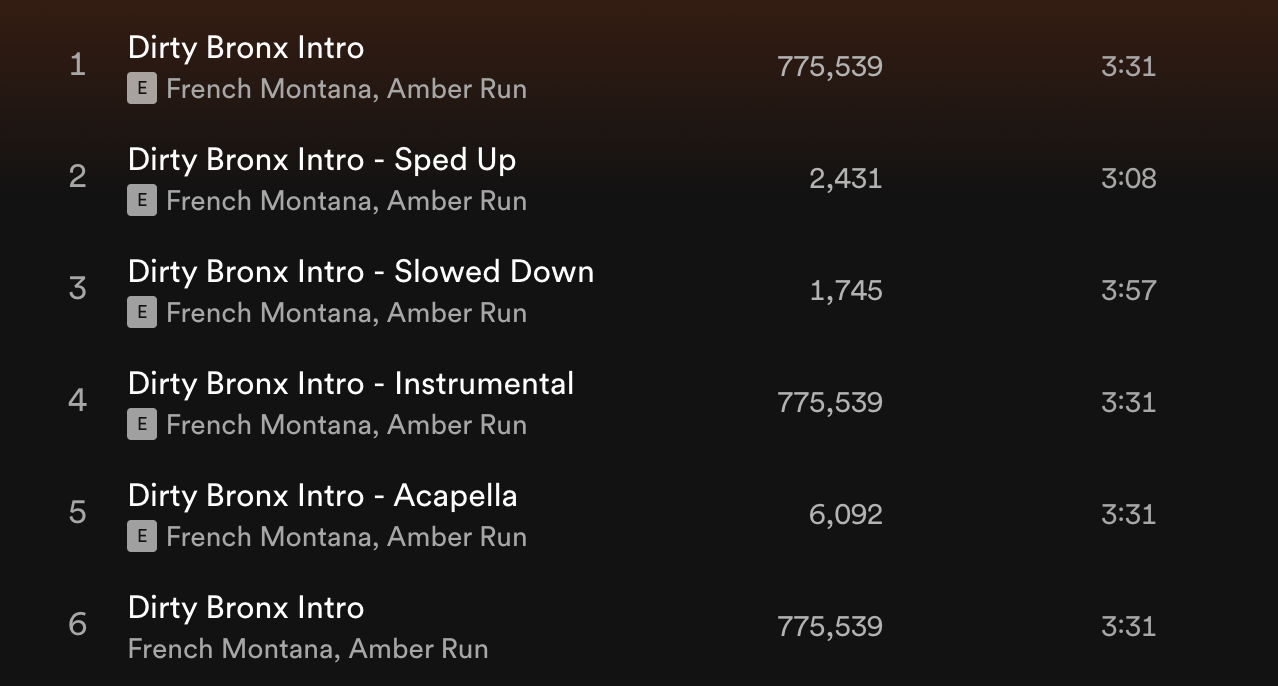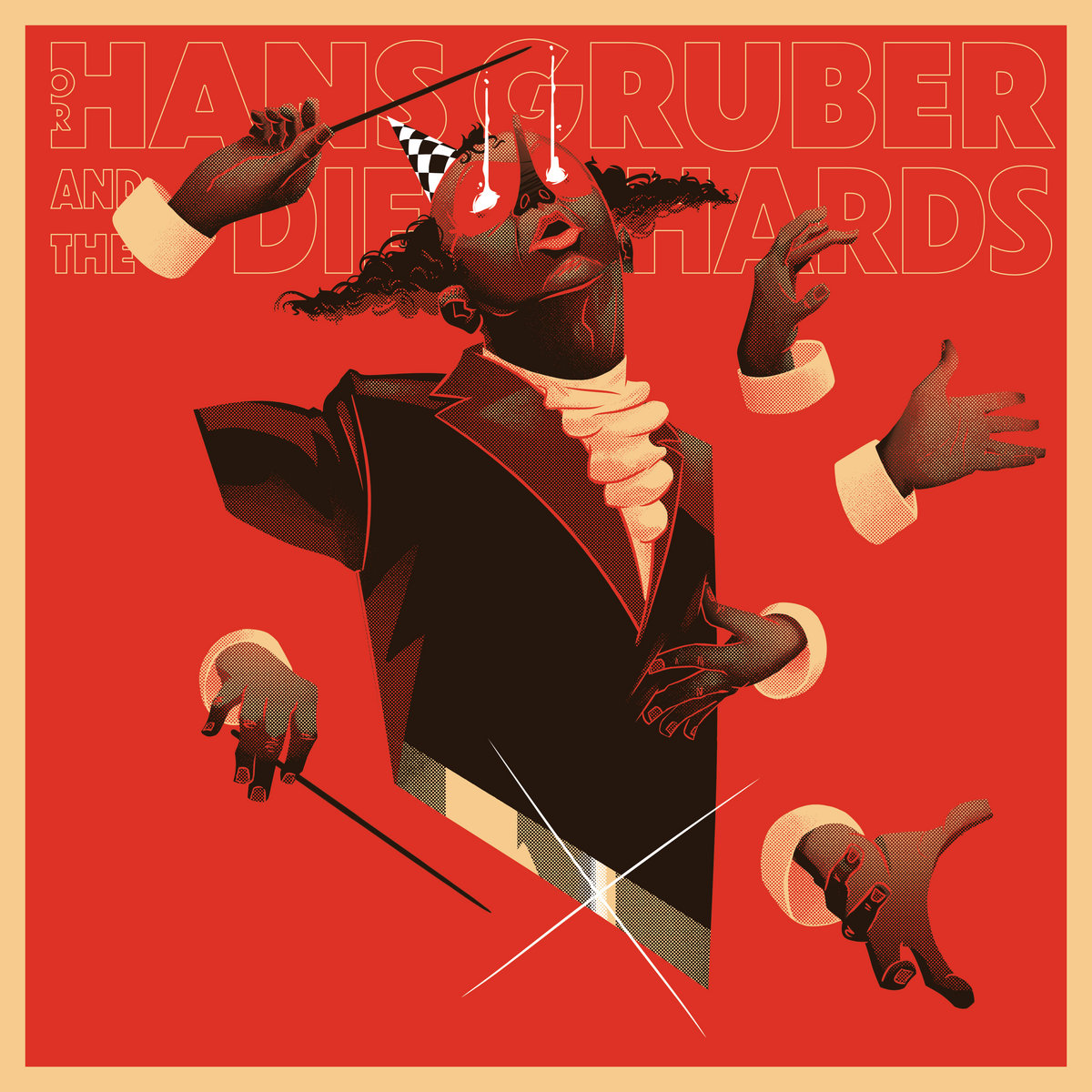Stop Streaming, Start Listening
/You know that James Baldwin quote that’s something along the lines of “Every writer has only one story to tell, and he has to find a way of telling it until the meaning becomes clearer and clearer”? Well, sometimes that’s how I feel with this blog, and this post might be my most concerted effort to articulate that yet.
I’ve written critically about Spotify before: about how the streaming service has made music feel disposable, how they can yank your songs away at a moment’s notice, how they encourage streaming bloat and gluttonous album rollouts, how they’ve alienated the listening public from their own libraries and laid the groundwork for an algorithmically generated hellscape long before anyone realized it was happening. Combined, these articles add up to over 10k words against Spotify, and that’s just the stuff that I’ve written.
Spotify made fake genres and fake musicians. They underpay artists and overpay bigots. They brought back payola and chased TikTok endless scrolling in a bid for our increasingly worsening attention spans. If quotes like Spotify saying that the company’s “only competitor is silence” didn’t tip you off, this is not an artful app designed by people who care about music. Rather, Spotify is an experience designed around collecting your data, funneling money upwards, and contributing to the “contentization” of music. Everything is designed to keep you in the app to track you for longer, facilitating surveillance creep in the process. There have been entire books written and podcasts recorded dedicated to covering how Spotify is actively ruining music, so all the hyperlinks shouldn’t be too surprising.
As if there already wasn’t enough to criticize Spotify for, most recently, the company’s CEO, Daniel Ek, chipped in nearly 700 Million Euros toward an “AI defense company” called Helsing. Even though this isn’t the first time he’s reinforced that allegiance, this recent warmongering double-down has spurred a wave of discussion about the place Spotify holds in our lives and what we might be actively contributing toward, either with our $10 monthly subscription or with our time and attention. Bands like Deerhoof, Xiu Xiu, King Gizzard, and Hotline TNT have all removed their music from Spotify in direct protest to this news, sparking a long-overdue reckoning with the application that acts as the de facto hub for all things music.
While these are relatively modest household names in the indie community (they’re no Neil Young or Joni Mitchell), these artists have acted swiftly and decisively, and one after the other, each making explicit statements about why they’re making this decision in their own words. “We don't want our music killing people. We don't want our success being tied to AI battle tech,” Deerhoof wrote. In an interview with Anthony Fantano, Jamie Steward of Xiu Xiu stated it plainly, saying that “bands lost the battle with streaming.”
In response, many people have been cancelling their Spotify subscriptions (met with a creepy "goodbye" playlist in a feeble plea to reel you in one last time), but hopping from one streaming company to another isn’t the entire solution. Swapping Spotify for Apple or Amazon on moral grounds is laughable—no ethical consumption and all that. Sure, cancelling your Spotify subscription sends a message, but I believe the bigger solution is to disentangle as much as you can.
All the time, people ask me how I find new music, and the answer is never any one thing; it’s more to do with an underlying curiosity. It’s not just opening Spotify and clicking on whatever playlist the algorithm sputters out; it’s following bands and keeping tabs on their label. It involves digging through related artists and seeing which groups a band is touring with. It’s going to see the opening act or creeping through someone’s Bandcamp collection to discover other albums they've purchased. It’s following writers and small blogs (cough cough) to see what they recommend. In an era where AI threatens to water down and homogenize literally every aspect of life, flawed but earnest human creations and recommendations are going to win out every time.
When you approach music this way, with the idea that your new favorite band could be one click away, something beautiful happens. You’re no longer waiting for your favorite artist to drop another album; you’re making your own luck and digging until you find something that scratches an itch you didn’t even know you had. It’s music culture vs platform culture.
As with all technofascism, I believe that breaking out of the currently designed scroll cycle, logging off, and spending your attention elsewhere is an act of defiance. In that regard, having control over your own files is about as radical an act as a music fan can make in 2025. I currently have over 80k songs in my iTunes library. I say that not to boast, but to show that it’s possible to have a bunch of music you care for in one place. It’s rewarding and worthwhile and intimate and can even be a fun hobby.
Go download some albums. Spend an afternoon burning all your old CDs. Redeem those codes that came on the little slips of paper in your vinyl. Go into Bandcamp and press “download” on everything in your library, even if it’s just to keep them in a folder somewhere on your desktop. What you might find is that that collection of music feels more representative of you and your taste than whatever Spotify is shoving into your face on the home screen. As you build this library out and listen to it, you might find you need Spotify less and less.
There’s no escaping the fact that your money is going somewhere evil, so I think most of this boils down to intentional listening. It’s about asking yourself what you want and putting a record on, not letting Spotify tell you what it thinks you want. It’s about engaging with what you’re taking in, thinking about what you consume, and supporting what you enjoy. It’s about being informed, empowered, and making intentional decisions.
Ultimately, the solution to so much of this is just a modicum more autonomy. The cool thing is, we can grant ourselves that.














